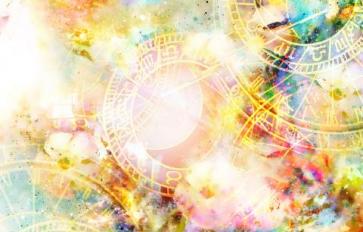
In college I had the privilege of attending a lecture that changed my life and how I view the world. The lecture was an integral part of my alma mater’s annual Wisdom Traditions series, and it was there that I heard Angeles Arrien, world-renowned author and activist, talk about her revolutionary book, The Four-Fold Way: Walking the Paths of the Warrior, Teacher, Healer, and Visionary.
The Four-Fold Way is about the four archetypes all ancient cultures of the world have in common: the Way of the Warrior (leadership), the Way of the Healer (medicine), the Way of the Visionary (calling, purpose, contribution, creativity), and the Way of the Teacher (wisdom). What could be viewed as a self-help book can also be interpreted, as I have chosen to do here, as a call to action for human beings across the globe. If we strive to better ourselves, we in turn can improve the world. By renewing our self-awareness, we can renew awareness concerning the economy and our quality of life in America. These are the cultural commonalities from The Four-Fold Way:
WARRIOR: Show up. 3 powers: presence, communication, taking a stand.
TEACHER: Prepare well, be open to outcome: “I have done my part."
HEALER: Pay attention to what has heart and meaning.
VISIONARY: Tell the truth with compassion and without conflict/judgment.
Arrien encourages us to nurture these four ancient ways within ourselves and stresses the importance of doing so. Her purpose in writing this book and her life’s work is joining people together. Arrien emphasizes the significance of interdependence rather than independence/dependence, both in correlation with how we behave in our human relationships and in our relationship with the world. If we follow our truth and our hearts, if we practice compassion and creativity, we can create the change we wish to see in the world.
These four cultural pillars, which could be seen simply as avenues for personal growth, could also change and strengthen the U.S. economy in innumerable, positive ways. For instance, the Way of the Warrior entails three characteristics that the current state of our economy lacks: Presence, communication, and taking a stand.
Presence is not simply being an entity in the public eye or maintaining a sense of self-awareness that many Wall Street fat cats seem to lack. The presence that Arrien speaks of is being present in the moment at hand, of monitoring our actions in life. Presence refers to being a positive force to be reckoned with, a force that cannot be denied. When we are present, we prevent many situations from even having the possibility of going morally awry.
Taking this important lesson from the Way of the Warrior could positively affect the economy in these ways: negation of moral ambiguity, correction of apathetic or indifferent attitudes for people of differing backgrounds, and strengthening of individual self-awareness, which ultimately extends to others. Presence has the possibility of curing our economic independence/dependence by opening pathways of interdependence. The borrowing/lending practices of America would have to be re-examined because presence eliminates denial and engenders realism.
Communication clearly refocuses the goals and wants of those who practice this lesson of the Warrior. Communication eliminates the possibility of vague explanation, AKA deception. Communication enables those without a voice to be heard, and encourages those with perhaps too loud of a voice to listen. Communication could erase the need for fine print and empty promises, and it would also create an inviting space for the important questions to be asked, rather than skimmed over. Communication could effectively empower the overlooked with a say in what happens in their lives.
Taking a stand removes the worry that the powers that be can take advantage of their status. When Americans take a stand, they can destroy moral ambiguity; they can clarify what is right and wrong, what is acceptable or abhorrent. Taking a stand is effectively speaking up when something unjust is being enacted, and speaking up right then and there. This leads to the Way of the Healer.
The Healer “pays attention to what has heart and meaning.” The Healer strives to love, to contribute, serve, and make a difference. When action comes from a place of love, there is no desire to pull the wool over citizens’ eyes. Love displaces greed because love only advocates justice and compassion for all. Love, which is not just a romantic emotion, can be practiced in the workplace, our local communities, and in turn throughout the country. If this love of one another exists in the workplace via respect, contribution, and service, it can extend to many other facets of American society. You might ask, How can love affect the economy? Love engenders respect and care for our fellow man and disintegrates the money-hungry mentality that so often separates us from what is truly important. Love diminishes cutthroat business tactics, the kind of tactics that Wall Street perpetuates. When love replaces competition, the element of pressure and stress subsides, the panic of climbing the monetary or social ladder disappears.
Contribution and service are not just acts of charity; they are characteristics of the Healer that benefit everyone in a capitalist society. Contribution creates a sense of a community, a sense that we as human beings and Americans are all in this together. Working together effectively dismantles loneliness, disparity, and helplessness. Contribution enlivens the enactor, rejuvenates the receiver, and creates threads of humanity that can bond us together. This goes hand in hand with service. If we want to serve, the action of service reaches past a sense of obligation or “right-doing.” When service is just a part of existence, we can conquer innumerable obstacles. If we all embrace one another as members of a global tribe, we can rebuild homes, aid the sick, repair the aftershocks of natural disasters, educate the unfortunate, comfort the disadvantaged -- we can even render class distinctions obsolete. If we wish to make a difference, like the Healer, we can.
Like the Warrior and the Healer, the Visionary aspires to tell the truth with compassion and without conflict/judgment. There is no pointing of fingers or shaming; the Visionary only gives voice to the authentic self. The authentic self is not simply an individual concept. The authentic self, like the Healer, is concerned with what has “heart and meaning.” This pursuit of truth is also the pursuit of respect and open-mindedness. The Visionary does not simply stand up on a soapbox and dictate what is right and what is wrong. The Visionary wishes to work with others, to collaborate and listen, in order to focus on or unearth what is truly important.
The truth cures many social and cultural ails, not to mention economic sickness. The truth gives the power back to those who have been rendered powerless; the truth clarifies what has been unclear. Similar to the Healer, the Visionary recognizes that clarity = safety. When all is clear, we as human beings are much safer, because whether the truth is pleasing or not, at least we know where we stand. Uncertainty blocks the ability to confidently grow and blossom, both personally and economically. Positive change stems from a strong foundation of definition and distinction.
This leads us to the way of the Teacher, who is “like the bamboo reed -- firm yet yielding.” The Teacher is concerned with preparing well and being open to outcome. The Teacher is confident in the fact that they have done their part. The characteristics that define the Teacher are elements that we can readily apply to the economy: the ability to let go, to find elegant solutions, and the maintenance of flexibility.
It is definitely difficult to let go of what happened to millions of ordinary Americans at the hands of corporate greed and capitalistic nonchalance in 2008. But the Teacher does not say that letting go means just forgetting the whole debacle. The Way of the Teacher encourages us to move forward, which is the only way that a progressive economy will emerge. Yes, tragedy struck. But what do we do when tragedy strikes? Do we cling to the past and hope that the future will be different? Or do we act, and act now, to ensure that the future has to be different?
The Teacher enables Americans to do the latter. The Teacher learns from the past in order to shape a reality that is different, that must be different. Rather than pointing fingers and dwelling on negativity, the Teacher suggests a kind of Taoist approach: do not do nothing, but do not scratch and kick in order to get things done. Change occurs with right, meditative, thoughtful action, not blind struggle.
The Four-Fold Way encourages us as human beings to take a stance on what is truly important, to focus on what has heart and meaning, and to find real purpose in the world. These ancient ways bring us back to the basics of humanity and eliminate the current mistakes of focusing on money, status, and only the individual. Arrien enlightens us to a simple truth: if we strive to be better people individually, the action flows to those around us. When those around us act in accordance to what is true and right, society, and in turn the economy, cannot help but follow.
It simply does not make sense to have a country of well-informed, like-minded, compassionate individuals, working together as a unit, to be powerless against an economic monster that is only concerned with enterprise, corporations, and capitalism. The Ways of the Warrior, Teacher, Healer, and Visionary reside within all of us. All we need to do is water the seeds of right action. We are the people of the United States, and we can change our economy by working together and building the kind of world that we wish to see.







